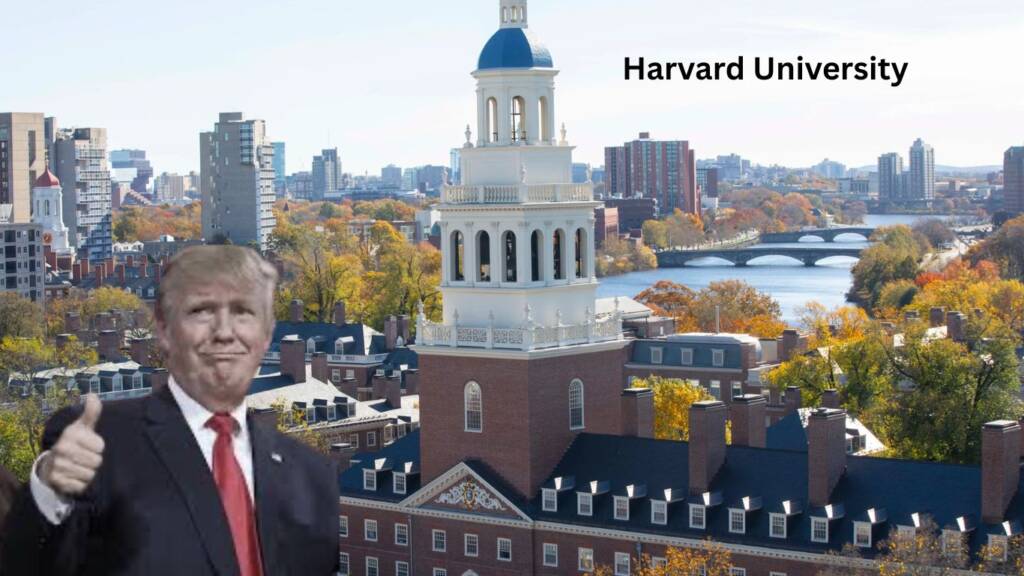Trump administration on Thursday revoked Harvard University’s certification under the Student and Exchange Visitor Program, effectively blocking the elite institution from enrolling international students. The decision, delivered in a letter signed by Homeland Security Secretary Kristi Noem, is likely to impact about 6,800 students — nearly 27 percent of the university’s student body.
This dramatic action comes amid a larger conflict between the administration and Harvard over data sharing, academic freedom, and the university’s alleged noncompliance with federal demands.
Targeting a Symbol of American Academia
Harvard, often seen as a symbol of American academic excellence, now finds itself at the center of a political storm. The Trump administration has been demanding detailed records of international students, claiming concerns over illegal activity and campus hostility toward Jewish students.
While concerns over campus safety and hate speech must be taken seriously, the administration’s sweeping demand for international student data — including coursework and disciplinary records — appears to go well beyond legal norms. Critics argue this is less about national security and more about political retaliation.
“This is unprecedented,” said Andrea Flores, a former DHS official, noting that targeting a single university in this way is unheard of.
Why the Administration Deserves Criticism
The Trump administration’s move looks reckless and vindictive. International students are not just contributors to Harvard’s prestige, but to America’s economy and innovation ecosystem. Many bring diverse perspectives, groundbreaking research, and future global connections. To punish them en masse over a bureaucratic dispute is both unjust and counterproductive.
Moreover, the decision threatens to damage the U.S. higher education sector globally. The message is clear: foreign students are welcome only under heavy political scrutiny.
This act also smacks of political theatre. The administration’s claims about a “hostile environment for Jewish students” should have prompted focused, evidence-based investigations—not blanket punishments that jeopardize the futures of thousands.
Harvard’s Hands Are Not Clean Either
However, Harvard is not blameless. The university’s response to federal requests has been slow, ambiguous, and arguably arrogant. When the government raised specific concerns, Harvard responded with vague statements about “only sharing what is legally required.” This bureaucratic defiance, while principled on privacy grounds, failed to show the proactive leadership expected from such a powerful institution.
Harvard has long prided itself on its global image and elite standards. But in this crisis, it appeared more focused on preserving its image than resolving serious concerns through negotiation or transparency.
By refusing to engage constructively, the university may have pushed the administration to escalate. While the federal response is undeniably excessive, Harvard’s lack of tact and urgency gave the administration ammunition.
Students Caught in the Crossfire
At the heart of this crisis are the students — bright minds from over 140 countries, many of whom now face legal limbo. International students pay high tuition, contribute to research, and form the cultural and intellectual diversity that makes American universities exceptional.
Now they must transfer or risk deportation.
Leo Gerden, a senior from Stockholm, voiced his anger: “The Trump administration is using us as poker chips. Without international students, Harvard isn’t Harvard.”
Legal Battle Ahead, but At What Cost?
Harvard is expected to challenge the decision in court, as it did last month over unrelated attempts to control its curriculum and hiring practices. Legal experts believe the university has a strong case. But a win in court won’t erase the uncertainty or the chilling effect this episode will have on international education.
This debacle exposes the dangers of politics infiltrating education. The Trump administration’s punitive overreach and Harvard’s bureaucratic aloofness have combined to create a needless crisis. In their power struggle, both sides lost sight of the very people who matter most: the students.
America’s academic reputation, built over decades, is not just under attack — it’s being dismantled from within.
